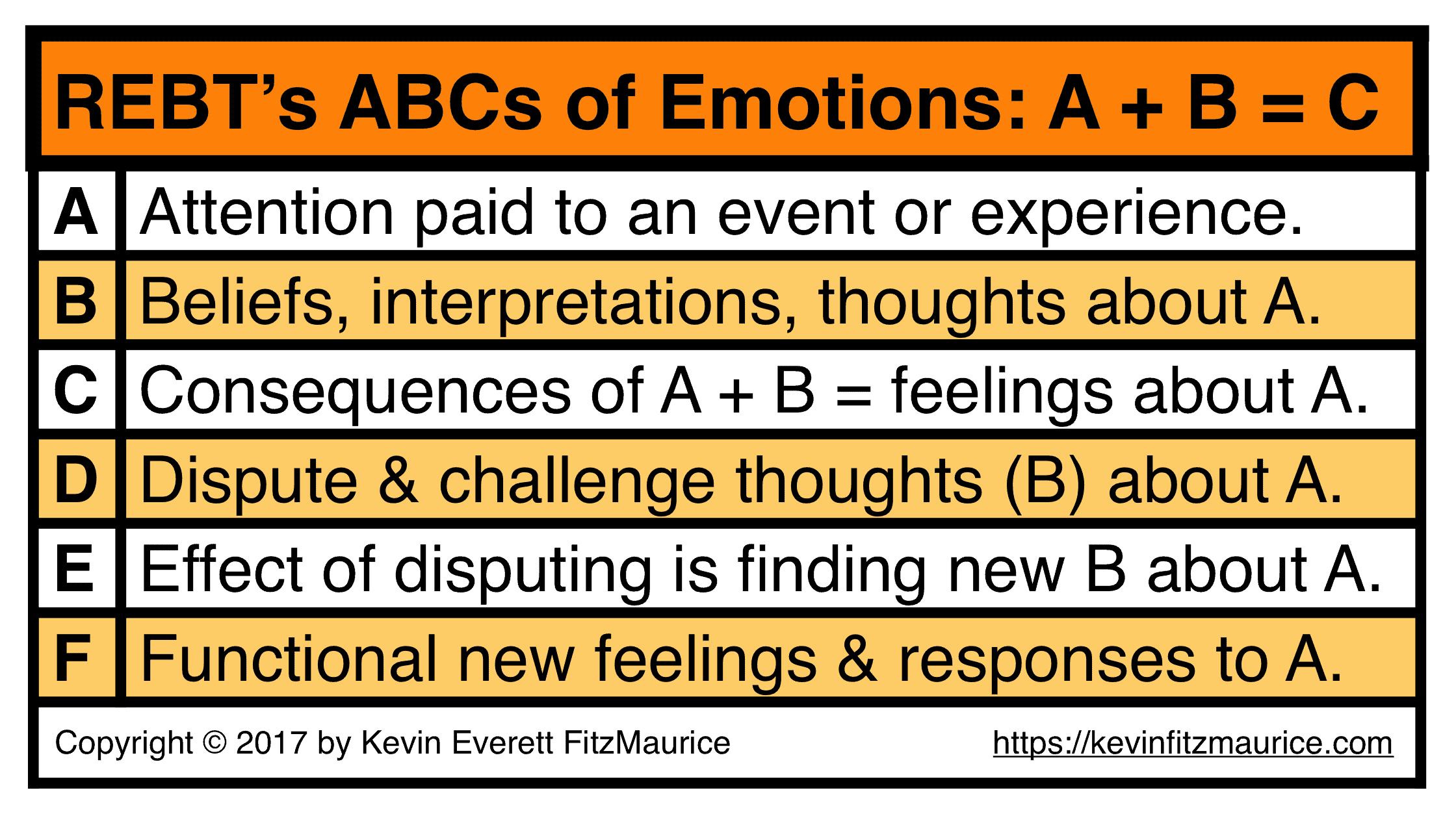Psychoanalysis Problems & Solutions
- Garden will teach you an easy and effective Cognitive Behavioral Therapy (CBT & REBT) system.
Psychoanalysis Problems: Discover 55 problems and 55 solutions. Psychoanalysis is about the ego, not the self. Choose what works best.
“The aim is modest, to turn neurotic misery into common unhappiness.” —Sigmund Freud
“Don’t ask why the patient is the way he is, ask for what he would change.” —Milton Erickson
“People got insights [psychoanalysis] into what was bothering them, but they hardly did a damn thing to change.” —Albert Ellis
“Arguably no other notable figure [Sigmund Freud] in history was so fantastically wrong about nearly every important thing he had to say.” —Todd Dufresne
“Psychodynamic therapy is not deep at all because it just comforts and soothes the ego (pride, self-esteem) so it will adjust to society.” —Kevin Everett FitzMaurice
“Psychoanalytic theory is the most stupendous intellectual confidence trick of the twentieth century and a terminal product as well—something akin to a dinosaur or zeppelin in the history of ideas, a vast structure of radically unsound design and with no posterity.” ―Peter Medawar
“Whoever knows he is deep strives for clarity; whoever would like to appear deep to the crowd strives for obscurity. For the crowd considers anything deep if only it cannot see to the bottom: the crowd is so timid and afraid of going into the water.” ―Friedrich Nietzsche
- Click for more on the ABCs of Emotions.
- Read and discover the best diagrams and maps of how people play games with your mind and heart.
- Most advanced understanding of feelings combined with efficient and effective therapy.
Psychoanalysis Problems with Solutions (1-22)
- Problems for Psychoanalysis: Assumes the organism will magically overcome problems independently.
Solution: Provide cognitive, emotional, and behavioral skill training to help the organism. - Problems for Psychoanalysis: They believe they are the authority of the client.
Solution: Believe the client is the authority on who they are. - Problems for Psychoanalysis: The client’s cognitive insight is insufficient.
Solution: Facilitate cognitive, emotive, and behavioral insight. - Problems for Psychoanalysis: Coddle clients.
Solution: Challenge clients. - Problems for Psychoanalysis: Commits all 101 errors listed in “Learning from Errors in Rational Emotive Behavior Therapy” by Michael Neenan and Windy Dryden.
Solution: Learn from the errors and incorporate their lessons into psychodynamic practice. - Problem: Concerned with ego adjustment.
Solution: Work on ego reduction. - Problem: Confuses case history with case treatment: history as therapy.
Solution: History is history, and treatment is treatment. The client’s history is not in the room. Deal with the client who is present now and how they interact with you now. - Problem: Confuses theoretical understanding with therapeutic intervention: theory as therapy.
Solution: Use theory to guide intervention, not as an intervention. - Problem: Depowering because it teaches environmental control of emotions.
Solution: Empower by teaching the cognitive mediation of emotions. - Problem: Determinism. Believes conditioning and human nature cannot be overcome.
Solution: Learn and teach the Existential freedom of choice. - Problem: Falsely promotes the idea that Freud discovered the unconscious mind.
Solution: Recognize that all deeply spiritual and mystical traditions have dealt with the unconscious mind for centuries. Some have many more levels than Freud ever dreamed of, for example, Tibetan Buddhism. The unconscious mind is often referred to as darkness or levels of darkness. - Problem: Falsely promotes the idea that Freud invented a tripartite system for the self.
Solution: Give credit to Plato and admit that Freud only renamed Plato’s tripartite system: spirited (superego), rational (ego), appetitive (id). - Problem: Falsely promotes the idea that Freud invented the concept of sublimation.
Solution: Give credit to Nietzsche and admit that Freud borrowed from Nietzsche. - Problem: Falsely promotes the idea that Freud invented the concept of primitive drives.
Solution: Give credit to Nietzsche and admit that Freud borrowed from Nietzsche. - Problem: Ego is treated as a reality instead of the delusion of self as thought that it is.
Solution: Recognize the ego as a construction rather than as a reality. - Problem: Inefficient and ineffective.
Solution: Focus more on outcomes and less on the therapist’s fantasy of what is happening in the relationship. - Problem: Kill experience with naming, terming, labeling, and the symbolic.
Solution: Learn to stand experiences rather than ward them off with knowledge, language, or semantics. - Problem: Lost in endless genealogies.
Solution: Focus on solutions and interventions, not on how problems started. - Problem: Lost in theoretical fantasies about the therapy they think is happening.
Solution: Reality test hypotheses with clients. - Problem: Lost in thoughts about case history and analytical theory; therefore, neither present in the room as self nor with the client.
Solution: Be here now and engage the client in learning how to problem solve and cope for themselves in the therapeutic moment. - Problem: Lost in fantasies about the client’s history and family.
Solution: Focus on the problem in the room. - Problem: Medical model.
Solution: Wellness model.
- Read and discover the best diagrams and maps of how people play games with your mind and heart.
- Most advanced understanding of feelings combined with efficient and effective therapy.
Psychoanalysis Problems with Solutions (23-55)
- (23) Problems for Psychoanalysis: Not genuine, open, honest, or real because of hiding the clinical insights, observations, and theoretical musings during the session.
Solution: Test your hypotheses and observations with the client. - (24) Problems for Psychoanalysis: One-up role of a guru with secret and undisclosed truths too complicated for poor weak worshipers/followers/sycophants, a.k.a. clients.
Solution: Form a collaborative relationship. - (25) Problems for Psychoanalysis: Poorly explained principles that are not easily learned or taught, perhaps due to a desire to maintain a psychiatric priesthood.
Solution: If the principles are real and understood, they can be explained clearly. - (26) Problems for Psychoanalysis: Practitioners promote conflict and violence, as seen at any convention of its practitioners when they gather to fight for the right to be right.
Solution: Promote humility instead of pride. Promote tolerance instead of rigid following and true believers. - (27) Problem: Practitioners prone to hysteria.
Solution: Practice stoicism, tolerance, and coping. - (28) Problem: Private meanings for common words such as “ego” that promote confusion.
Solution: Recognize the prior use of the term “ego” by the general populace, mysticism, spirituality, and religion. - (29) Problem: Promote pride.
Solution: Promote humility, acceptance, tolerance, and forgiveness. - (30) Problem: Promote the belief that trauma must cause negative changes.
Solution: Promote resiliency and the ability to process trauma helpfully. - (31) Problem: Promote ventilation that magnifies, justifies, and reinforces problems.
Solution: Promote only ventilation that facilitates the letting go of problems. - (32) Problem: Promote victim mentality.
Solution: Promote empowerment by teaching coping, problem-solving, and emotional responsibility. - (33) Problem: Promote wandering, tedium, and interminable client disclosure.
Solution: Limit client disclosure to a focused problem and then work on that problem before accepting another. - (34) Problem: Promotes confusion in terms.
Solution: Clearly and operationally define terms. - (35) Problem: Promotes dependency.
Solution: Teach the client to be their therapist. - (36) Problem: Promotes narcissism, self-absorption, terminal uniqueness, blaming, and damning.
Solution: Promote responsibility, forgiveness, tolerance, understanding, compassion, empathy, and acceptance. - (37) Problem: Promotes obfuscation in writing style.
Solution: Read and practice the points in “The Elements of Style” and “Writing that Works.” “Everything that can be said can be said clearly” —Ludwig Wittgenstein. - (38) Problem: Promotes obfuscation in theories.
Solution: Stop hiding a lack of understanding behind a lack of clarity. “If you cannot explain it simply, you don’t understand it well enough” —Albert Einstein. - (39) Problem: Promotes undue complexity.
Solution: Occam’s Razor: the scientific principle that the best explanation of anything is the one that uses the fewest assumptions and hypotheses and is thereby the simplest. - (40) Problem: Promotes whining.
Solution: Promote responsibility, problem-solving, and coping. - (41) Problem: Psychoanalysis is therapist paralysis through analysis.
Solution: Reality-check analysis with the client and modify as appropriate and useful. - (42) Problem: Relies on insight for motivation.
Solution: Use the client’s goals for motivation. - (43) Problem: Teaches a theory of the ego and its ways as if it were a theory of the self.
Solution: Face the fact that psychodynamic theory is a theory about the function of the ego and not about the real self. - (44) Problem: Theoretical to the end.
Solution: Practice pragmatism. - (45) Problem: Theoretically astute regarding ego games but therapeutically incompetent.
Solution: Differentiate theory from practice. - (46) Problem: Theoretically deep regarding ego games, yet therapeutically superficial.
Solution: Guide the session around the deep issues and away from trivialities. - (47) Problem: Theoretically self-serving: pride from being one-up.
Solution: Seek roles that promote greater equality with clients, such as a trainer or coach. - (48) Problem: Theoretically loquacious, directionless, meandering, and gluttonous.
Solution: Practice parsimony in theory instead of circumstantiality. - (49) Problem: Proceed from theory to case. That is, force case information to conform to and prove a theory.
Solution: Proceed from case to theory. That is, use evidence-based approaches to develop scientific-based theories. - (50) Problem: Therapeutically lazy: lack of session focus, structure, and goals.
Solution: Structure the counseling session with agreed-upon goals. - (51) Problem: Unable to experience without mind.
Solution: Learn to allow the free flow of experience using the heart. - (52) Problem: Unethical treatment when other therapies are proven more efficient, effective, and lasting.
Solution: Refer to cases that are proven to be better handled by others or learn and borrow more effective techniques from other theories. - (53) Problem: Unexamined faulty premises such as believing in the ego’s reality.
Solution: Discover the false nature of the ego. - (54) Problem: Working on clients rather than with clients.
Solution: Involve clients in goal setting and work to help them achieve their goals. - (55) Problem: Applies Freud’s main contribution, defense mechanisms, to help the ego adapt and adjust.
Solution: Apply Freud’s defense mechanisms to help uproot self-esteem and ego.
- Read and discover the best diagrams and maps of how people play games with your mind and heart.
- Most advanced understanding of feelings combined with efficient and effective therapy.
Psychoanalysis Problems: Quotations Various Sources
Listed Alphabetically
“A fool is only a fool because he won’t see he is a fool.” —Kevin Everett FitzMaurice
“A man of genius makes no mistakes. His errors are volitional and are the portals of discovery.” —James Joyce
“Arguably no other notable figure [Sigmund Freud] in history was so fantastically wrong about nearly every important thing he had to say.” —Todd Dufresne
“But if ye be without chastisement, whereof all are partakers, then are ye bastards, and not sons.” —Hebrews 12:8
“By honestly acknowledging your past errors, but never damning yourself for them, you can learn to use your past for your own future benefit.” —Albert Ellis and Robert A. Harper, A Guide to Rational Living, Third Edition, p. 194
“Correction is grievous unto him that forsaketh the way: and he that hateth reproof shall die.” —Proverbs 15:5
“Failure doesn’t have anything to do with your intrinsic value as a person.” —Albert Ellis and Robert A. Harper, A Guide to Rational Living, Third Edition, p. 206
“For whom the Lord loveth he chasteneth, and scourgeth every son whom he receiveth.” —Hebrews 12:6
“If we eliminated all errors, we would also eliminate much discovery, art, insight, learning, and creativity that results from facing errors.” —Kevin Everett FitzMaurice
“If ye endure chastening, God dealeth with you as with sons; for what son is he whom the father chasteneth not?” —Hebrews 12:7
“My son, despise not the chastening of the LORD; neither be weary of his correction:” —Proverbs 3:11
“Object Relations Theory is an interesting study of self-esteem and its ego objects.” —Kevin Everett FitzMaurice
“Psychodynamic therapy is not deep at all because it just comforts and soothes the ego (pride, self-esteem) so it will adjust to society.” —Kevin Everett FitzMaurice
“Psychoanalytic theory is the most stupendous intellectual confidence trick of the twentieth century and a terminal product as well—something akin to a dinosaur or zeppelin in the history of ideas, a vast structure of radically unsound design and with no posterity.” ―Peter Medawar
“The aim is modest, to turn neurotic misery into common unhappiness.” —Sigmund Freud
“The greatest explorer on this earth never takes voyages as long as those of the man who descends to the depth of his heart.” —Julien Green
“The trouble with most of us is that we would rather be ruined by praise than saved by criticism.” —Norman Vincent Peale
“When receiving correction, the wise seeks to learn, and the fool seeks to justify with excuses.” —Kevin Everett FitzMaurice
- Read and discover the best diagrams and maps of how people play games with your mind and heart.
- Most advanced understanding of feelings combined with efficient and effective therapy.
Psychoanalysis Problems: Related Pages of Free Information
- 32 Defense Mechanisms, Including Freud’s 12
- CBT, CT, & REBT Cognitive Psychotherapies: List Pages
- Coping Skills: Free Help
- Counseling Issues: Free Help
- Ego & Self-Esteem Fast-Facts
- Emotional Responsibility: List Pages
- Exercises & Techniques: List Pages
- Feeling & Coping: Fast-Facts
- Freud’s 12 Ego Defense Mechanisms
- Payoffs for Ego
- REBT (Rational Emotive Behavior Therapy): List Pages
- REBT Is Deeper than CBT, CT, & Other Counseling Theories
- Self-Esteem Issues: List Pages
- Unconditional Self-Esteem (USE): Defined
Save the Work of Carl Rogers
“Carl Rogers’s belief that clients need counselors to provide genuine acceptance and empathy is false because it is only preferable and not a necessity.” —Kevin Everett FitzMaurice
- Read and discover the best diagrams and maps of how people play games with your mind and heart.
- Read and discover how CBT, REBT, & Stoicism evolved into one system: STPHFR.
- Most advanced understanding of feelings combined with efficient and effective therapy.
Psychoanalysis Problems: 6 Groups of Topics Menu
- 1. Pages by Topic
- 2. Fast-Facts by Topic
- 3. Quotations by Topic
- 4. Poems by Topic
- 5. Scripture by Topic
- 6. Websites by Topic
- Read and discover how CBT, REBT, & Stoicism evolved into one system: STPHFR.
- Read and discover the world’s best breathing exercise for centering and peace of mind.
- Most advanced understanding of feelings combined with efficient and effective therapy.
Psychoanalysis Problems: 10 Skills & Topics Menu
- 1. Coping Skills & Topics
- 2. Problem-Solving Skills & Topics
- 3. Communication Skills & Topics
- 4. Recovery Skills & Topics
- 5. Anger Skills & Topics
- 6. Blame Skills & Topics
- 7. Thinking Skills & Topics
- 8. Responsibility Skills & Topics
- 9. Counseling Skills & Topics
- 10. Praying Skills & Topics
- Read and discover how CBT, REBT, & Stoicism evolved into one system: STPHFR.
- Read and discover the world’s best breathing exercise for centering and peace of mind.
- Most advanced understanding of feelings combined with efficient and effective therapy.





